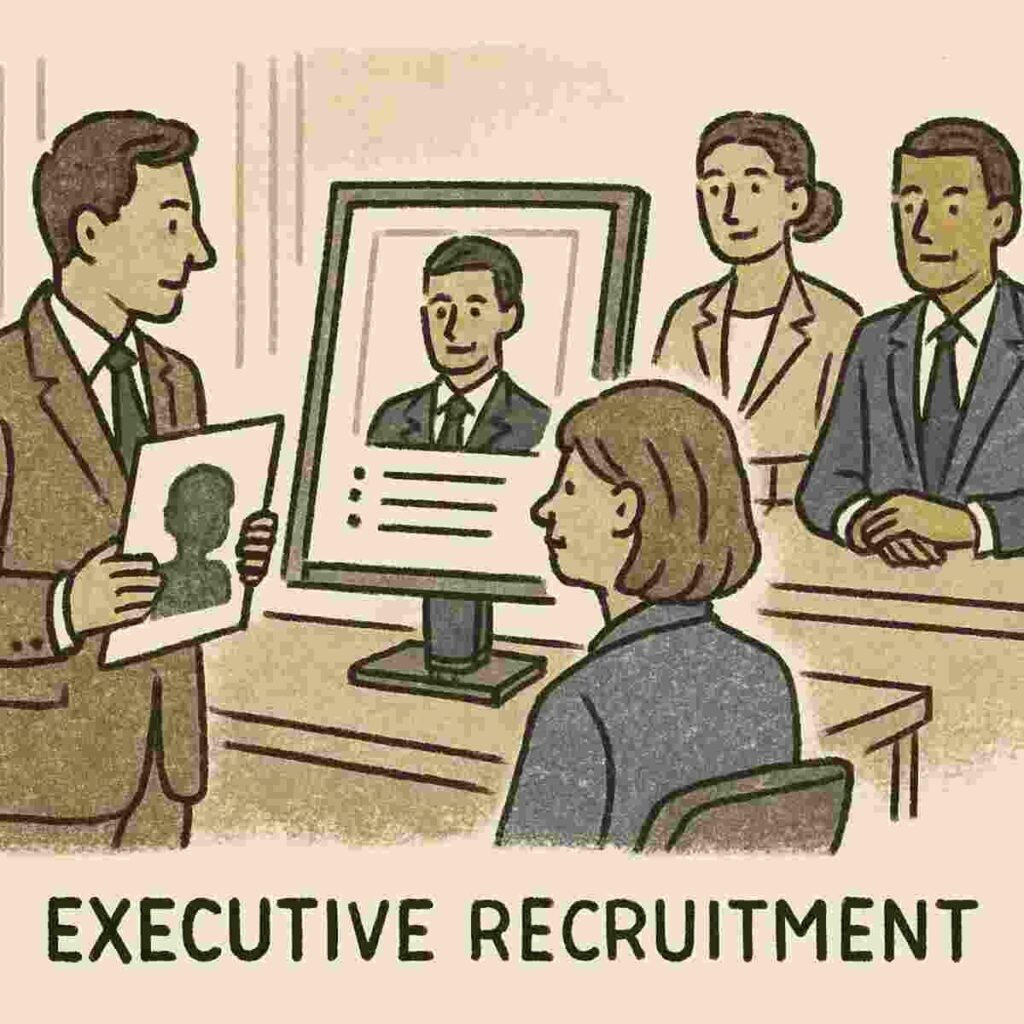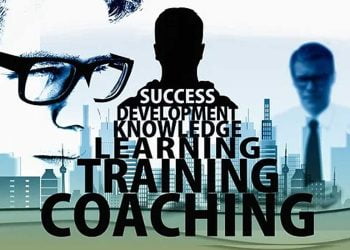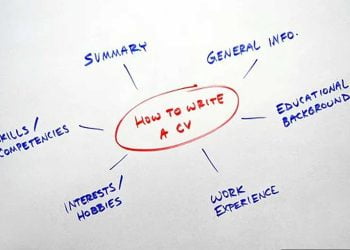Construction recruiters serve as the bridge between talented executives and construction companies looking to fill high-level positions. Their expertise lies in identifying, attracting, and hiring individuals who possess the skills and experience necessary to lead construction projects or companies. This niche recruitment area requires a deep understanding of both the industry’s demands and the unique skills that executives bring to the table. Select the hire construction staff.
The Evolution of Construction Recruitment
The recruitment landscape within the construction industry has evolved significantly over the years. Initially, it was a more straightforward process, often based on direct recommendations and word-of-mouth. However, as the industry has grown and become more complex, the need for specialized recruiters with industry-specific knowledge has become apparent. Recruiters now employ advanced techniques, such as data analytics and AI-driven assessments, to match candidates with the right roles efficiently.
The Importance of Industry-Specific Knowledge
For construction recruiters, having a deep understanding of the industry is crucial. This knowledge allows them to identify the specific skills and experience required for different roles, such as project managers, site engineers, or C-level executives. Understanding industry trends, regulatory changes, and emerging technologies helps recruiters anticipate the needs of construction companies and find candidates who can meet those needs.
Building Relationships with Key Industry Players
Successful construction recruiters understand the value of building strong relationships with both candidates and companies. Networking is a key component of their role, enabling them to keep a pulse on the industry’s talent pool and upcoming opportunities. By cultivating these relationships, recruiters can more effectively match the right executive with the right company, ensuring a successful placement that benefits both parties.
Why Executive Recruiters Are Crucial in Construction
The construction industry is dynamic and constantly evolving. New projects, technologies, and regulations mean that companies need leaders who are adaptable and forward-thinking. Executive recruiters play a crucial role by ensuring the right talent is placed in these leadership positions. They sift through countless resumes, conduct interviews, and evaluate candidates to find the perfect match for a company’s needs.
Adapting to Industry Trends and Innovations
Executive recruiters must remain vigilant about industry trends and innovations, as these factors significantly influence the skills and expertise required for leadership roles. The rise of sustainable construction practices, the integration of smart technologies, and the increasing emphasis on safety and compliance are just a few examples of trends that recruiters must consider when sourcing candidates.
The Role of Recruiters in Facilitating Organizational Change
As construction companies expand or pivot to embrace new technologies and practices, they often require new leadership to guide these transitions. Recruiters play a vital role in sourcing executives who can manage change effectively. This includes finding leaders who are not only skilled in managing projects but also in driving cultural shifts within organizations.
Ensuring Diversity and Inclusion in Leadership
A diverse leadership team can offer unique perspectives and drive innovation within construction companies. Recruiters are increasingly focused on promoting diversity and inclusion in executive roles. This involves actively seeking candidates from varied backgrounds and ensuring that the recruitment process is free from bias, ultimately leading to a more inclusive and equitable industry.
How Do Executive Recruitment Firms Work?
Executive recruitment firms specialize in finding and placing high-level executives. These firms have a vast network of contacts in the industry and use a variety of methods to identify potential candidates. They conduct in-depth interviews and assessments to ensure that candidates not only have the right skills and experience but also fit well with the company culture.
Developing a Robust Talent Network
Recruitment firms maintain extensive databases of potential candidates, which they continuously update and expand. By leveraging industry events, online platforms, and professional networks, they cultivate a robust talent pool. This network allows them to quickly identify suitable candidates when a position becomes available, reducing the time-to-hire for companies.
Utilizing Advanced Recruitment Tools and Techniques
Modern recruitment firms utilize a range of tools and techniques to enhance their search processes. Applicant tracking systems, AI-driven assessments, and psychometric testing are just a few examples of the technologies employed. These tools help firms assess candidates more thoroughly, ensuring a better match for the company’s needs and culture.
Navigating Confidential Searches and Discreet Placements
Executive recruitment often involves sensitive searches where confidentiality is paramount. Recruitment firms are adept at handling such situations, conducting discreet searches that protect the interests of both the candidate and the hiring company. This is particularly important for high-profile positions where privacy is a priority.
The Recruitment Process: Step-by-Step Guide

Navigating the executive recruitment process in the construction industry involves several key steps, each crucial to finding the right candidate for the job.
Step 1: Defining the Role
Before you can find the right executive, you need to have a clear understanding of the role. This means outlining the responsibilities, required skills, and experience necessary for the position. In the construction industry, this might include experience with specific types of projects, leadership skills, and knowledge of industry regulations.
Crafting a Comprehensive Job Description
A well-crafted job description is the foundation of the recruitment process. It should clearly outline the key responsibilities, required qualifications, and desired attributes of the ideal candidate. In construction, this often includes technical expertise, leadership qualities, and familiarity with specific regulatory requirements.
Identifying Key Competencies and Skills
Beyond technical qualifications, identifying the key competencies and soft skills required for the role is crucial. This might include problem-solving abilities, communication skills, and adaptability. By defining these competencies upfront, recruiters can better assess candidates’ suitability during the screening process.
Aligning with Company Goals and Culture
The role definition process should also consider the company’s broader goals and culture. Understanding how the new executive will fit into the existing team and contribute to organizational objectives is essential. This alignment ensures that the selected candidate not only performs well but also thrives within the company’s culture.
Step 2: Sourcing Candidates
Once the role is defined, the search for candidates begins. This involves leveraging networks, industry contacts, and online platforms to identify potential candidates. Executive recruitment firms often have access to a broad pool of talent, making this step more efficient and effective.
Leveraging Industry Networks and Contacts
Recruiters tap into their extensive networks and industry contacts to identify potential candidates. Attending industry conferences, participating in webinars, and joining professional associations are just a few ways recruiters expand their networks, staying connected to top talent and emerging leaders.
Utilizing Digital Platforms and Social Media
Digital platforms and social media have become indispensable tools for sourcing candidates. LinkedIn, industry-specific job boards, and online forums provide recruiters with access to a global talent pool. These platforms allow recruiters to engage with passive candidates who may not be actively seeking new opportunities.
Engaging with Passive Candidates
Many of the best candidates for executive roles are not actively looking for new jobs. Recruiters employ strategies to engage with these passive candidates, such as personalized outreach and relationship-building over time. This proactive approach ensures that recruiters have access to the best talent, even if they are not currently on the market.
Step 3: Screening and Interviewing
Screening involves reviewing resumes and conducting preliminary interviews to narrow down the list of candidates. This is followed by more in-depth interviews to assess each candidate’s skills, experience, and cultural fit with the company.
Conducting Initial Resume Reviews
The screening process begins with a thorough review of resumes to identify candidates who meet the basic qualifications for the role. Recruiters look for specific keywords, relevant experience, and accomplishments that align with the job description.
Implementing Structured Interview Techniques
Structured interviews provide a consistent framework for evaluating candidates. Recruiters use standardized questions to assess candidates’ skills, experiences, and cultural fit. This approach ensures that all candidates are evaluated fairly and objectively.
Assessing Cultural Fit and Soft Skills
In addition to technical skills, assessing cultural fit and soft skills is crucial during the interview process. Recruiters evaluate candidates’ communication styles, problem-solving abilities, and adaptability to ensure they align with the company’s values and work environment.
Step 4: Evaluation and Selection
After interviews, candidates are evaluated based on their qualifications and how well they fit the company’s needs. This evaluation might involve additional assessments or reference checks to verify the candidate’s background and performance.
Utilizing Assessment Tools and Techniques
Assessment tools, such as psychometric tests and behavioral assessments, provide valuable insights into candidates’ personalities and work styles. These tools help recruiters identify candidates who are not only qualified but also likely to succeed in the role.
Conducting Thorough Reference Checks
Reference checks are an essential step in the evaluation process. Recruiters contact former employers and colleagues to verify candidates’ work history, achievements, and interpersonal skills. This information provides a comprehensive view of the candidate’s past performance and potential.
Making Data-Driven Decisions
Recruiters use data-driven decision-making to select the best candidate for the role. By analyzing assessment results, interview feedback, and reference check findings, recruiters can make informed choices that align with the company’s needs and goals.
Step 5: Making the Offer
Once the ideal candidate is identified, an offer is made. This includes negotiating terms and conditions of employment, such as salary, benefits, and start date.
Crafting Competitive Compensation Packages
To attract top talent, recruiters work with companies to develop competitive compensation packages. This includes not only salary but also benefits, bonuses, and other incentives that align with industry standards and candidate expectations.
Navigating Offer Negotiations
Offer negotiations can be complex, requiring careful consideration of both the company’s budget and the candidate’s expectations. Recruiters facilitate these negotiations, ensuring that both parties reach a mutually beneficial agreement.
Ensuring a Smooth Onboarding Process
After the offer is accepted, a smooth onboarding process is crucial for the candidate’s success. Recruiters assist with onboarding by coordinating with HR teams to ensure that the new executive is welcomed and integrated into the company effectively.
Tips for Aspiring Construction Executives
If you’re an aspiring executive in the construction industry, understanding the recruitment process can help you stand out. Here are some tips to enhance your chances:
- Build a Strong Network: Connect with industry professionals and recruiters. Attend industry events and join professional organizations to expand your network.
- Engage in Continuous Learning: Staying updated with industry trends and technological advancements is crucial for aspiring executives. Pursue relevant courses, certifications, and workshops to enhance your skills and knowledge. This not only strengthens your resume but also demonstrates your commitment to personal and professional growth.
- Seek Mentorship and Guidance: Building relationships with experienced mentors in the construction industry can provide valuable insights and guidance. Mentors can offer advice on career progression, industry challenges, and leadership strategies, helping you navigate your path to an executive role.
- Highlight Relevant Experience: Tailor your resume and cover letter to highlight experience that is particularly relevant to the construction industry.
- Emphasize Leadership and Management Skills: In addition to technical expertise, emphasize your leadership and management skills. Highlight experiences where you successfully led teams, managed projects, or implemented innovative solutions. Demonstrating your ability to lead effectively is crucial for executive roles.
- Showcase Industry-Specific Achievements: Highlight your accomplishments and contributions to the construction industry. Whether it’s completing high-profile projects, implementing sustainable practices, or achieving cost savings, showcasing these achievements can set you apart from other candidates.
- Prepare for Interviews: Research the company and role thoroughly. Practice answering common interview questions and prepare questions of your own to demonstrate your interest and engagement.
- Understand the Company’s Culture and Values: Research the company’s culture, values, and mission to understand what they prioritize in their leaders. Tailor your interview responses to align with these values, demonstrating your fit with the organization.
- Develop Thoughtful Questions: Prepare thoughtful questions to ask during the interview. This shows your genuine interest in the company and the role, while also providing you with valuable insights into the organization’s expectations and challenges.
Common Challenges in Executive Recruitment
Finding the Right Fit
One of the biggest challenges in executive recruitment is finding a candidate who not only has the right skills and experience but also fits the company culture. This requires a deep understanding of both the candidate and the company.
Balancing Technical Skills and Cultural Fit
Recruiters often face the challenge of balancing technical skills with cultural fit. While a candidate may have the necessary qualifications, their compatibility with the company’s culture is equally important. Recruiters must assess both aspects to ensure a successful long-term placement.
Overcoming Bias in Recruitment
Bias in recruitment can hinder the process of finding the right fit. Recruiters must be aware of unconscious biases and implement strategies to mitigate them, such as using blind recruitment techniques and structured interviews. This ensures a fair and inclusive recruitment process.
Managing Candidate Expectations
Candidates’ expectations can sometimes differ from what the company offers, leading to challenges in finding the right fit. Recruiters must manage these expectations by providing clear and transparent information about the role, compensation, and company culture.
Keeping Up with Industry Changes
The construction industry is constantly changing, and staying updated with these changes can be challenging. This makes it crucial for recruiters to continually educate themselves about new trends, technologies, and regulations.
Adapting to Technological Advancements
Technological advancements, such as Building Information Modeling (BIM) and virtual reality, are transforming the construction industry. Recruiters must stay informed about these technologies and their impact on the skills and expertise required for executive roles.
Navigating Regulatory Changes
Regulatory changes can significantly impact the construction industry, affecting project timelines, costs, and compliance requirements. Recruiters must stay updated on these changes to ensure that candidates have the necessary knowledge and expertise to navigate them.
Embracing Sustainability and Green Building Practices
Sustainability and green building practices are becoming increasingly important in the construction industry. Recruiters must identify candidates who are knowledgeable about sustainable practices and can lead initiatives that align with the company’s environmental goals.
Balancing Speed and Quality
There’s often pressure to fill positions quickly, but rushing the recruitment process can lead to poor hires. It’s important to balance the need for speed with the need to thoroughly vet candidates to ensure they are the right fit.
Implementing Efficient Recruitment Processes
Recruiters can implement efficient processes, such as using technology to streamline candidate sourcing and screening. This allows them to maintain speed without compromising the quality of hires, ensuring that the best candidates are identified promptly.
Managing Stakeholder Expectations
Balancing speed and quality requires effective communication with stakeholders, such as hiring managers and company executives. Recruiters must manage expectations by setting realistic timelines and keeping stakeholders informed throughout the recruitment process.
Learning from Past Recruitment Mistakes
Recruiters can learn valuable lessons from past recruitment mistakes to improve their processes. Analyzing previous hires that didn’t work out can provide insights into what went wrong and how to avoid similar issues in the future.
Conclusion
Navigating executive recruitment in the construction industry doesn’t have to be intimidating. By understanding the role of recruiters, following a structured recruitment process, and being aware of common challenges, you can effectively find or become a top executive in the industry. Remember, whether you’re a recruiter or an executive, the key is to focus on building relationships and staying informed about industry trends. This approach not only enhances the recruitment process but also contributes to long-term success in the construction industry.









